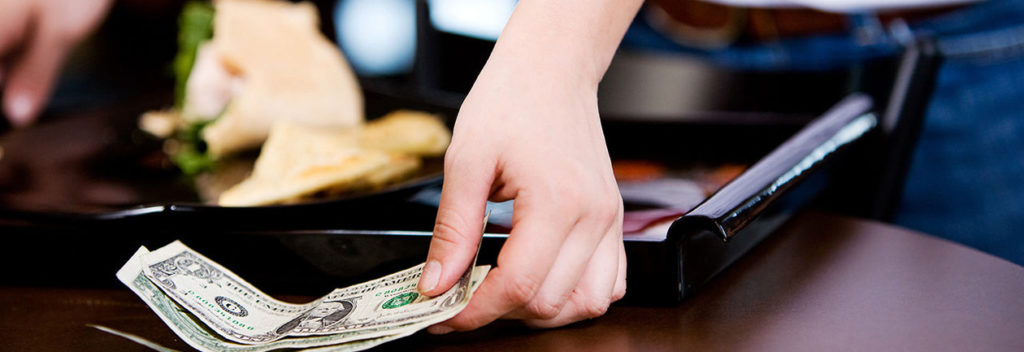Big Changes for Employers Who Utilize Tip-Pooling

Until recently, California employers who pay minimum wage plus tips have been able to maintain tip-pooling policies which require customarily tipped employees, such as servers, to pool their tips and share them with non-customarily tipped employees, such as cooks and dishwashers.
This all changed in February 2016, when the Ninth Circuit issued a surprising decision in Oregon Restaurant and Lodging Association v. Perez (Oregon Restaurant), holding that California businesses may no longer require tip-pooling, causing many companies to make changes to their policies.
Background
To understand the court’s decision, it is important to grasp how the case reached the court in the first place. Under section 203 of the Fair Labor Standards Act, employers can fulfill part of their hourly minimum wage obligation by taking a tip credit, meaning that the employer can pay a base salary which is lower than the minimum wage as long as the base salary plus tips is equal to or higher than the minimum wage. Section 203 does not prohibit tip-pooling among employees who “customarily and regularly” receive tips.
In 2010, the Ninth Circuit issued a decision in Cumbie v. Woody Woo, Inc. (Cumbie) which held that a tip-pooling arrangement with both customarily tipped and non-customarily tipped employees did not violate section 203 because the section was silent regarding employers who do not take a tip credit. In 2011, in direct response to the Cumbie decision, the Department of Labor (DOL) issued a formal rule which extended section 203’s restrictions on tip-pooling to all employers regardless of whether they take a tip credit. Then, the district court in Oregon Restaurant, as well as another district court in Nevada, invalidated the DOL’s 2011 regulation, holding that the decision in Cumbie barred the DOL’s ability to issue the 2011 regulation.
However, the Ninth Circuit reversed the district court judgments, holding that the DOL could indeed regulate tip-pooling policies of employers even when they do not take a tip credit, meaning that the 2011 DOL regulation stood. The court reasoned that section 203’s silence on employers who do not take a tip credit left room for the DOL to issue the 2011 regulation.
Current Status of Tip Pooling in California
As a result of the Oregon Restaurant decision, California businesses may no longer require customarily tipped employees to share their tips with non-customarily tipped employees, and consequently, many companies are making changes to their tip-pooling policies.
The changes being made include eliminating tipping and charging higher prices, eliminating tipping and charging mandatory service fees, and creating a means by which customers can tip non-customarily tipped employees. Any employers who utilize tip-pooling among both customarily tipped and non-customarily tipped employees are encouraged to review and change their policies to comply with the law.
